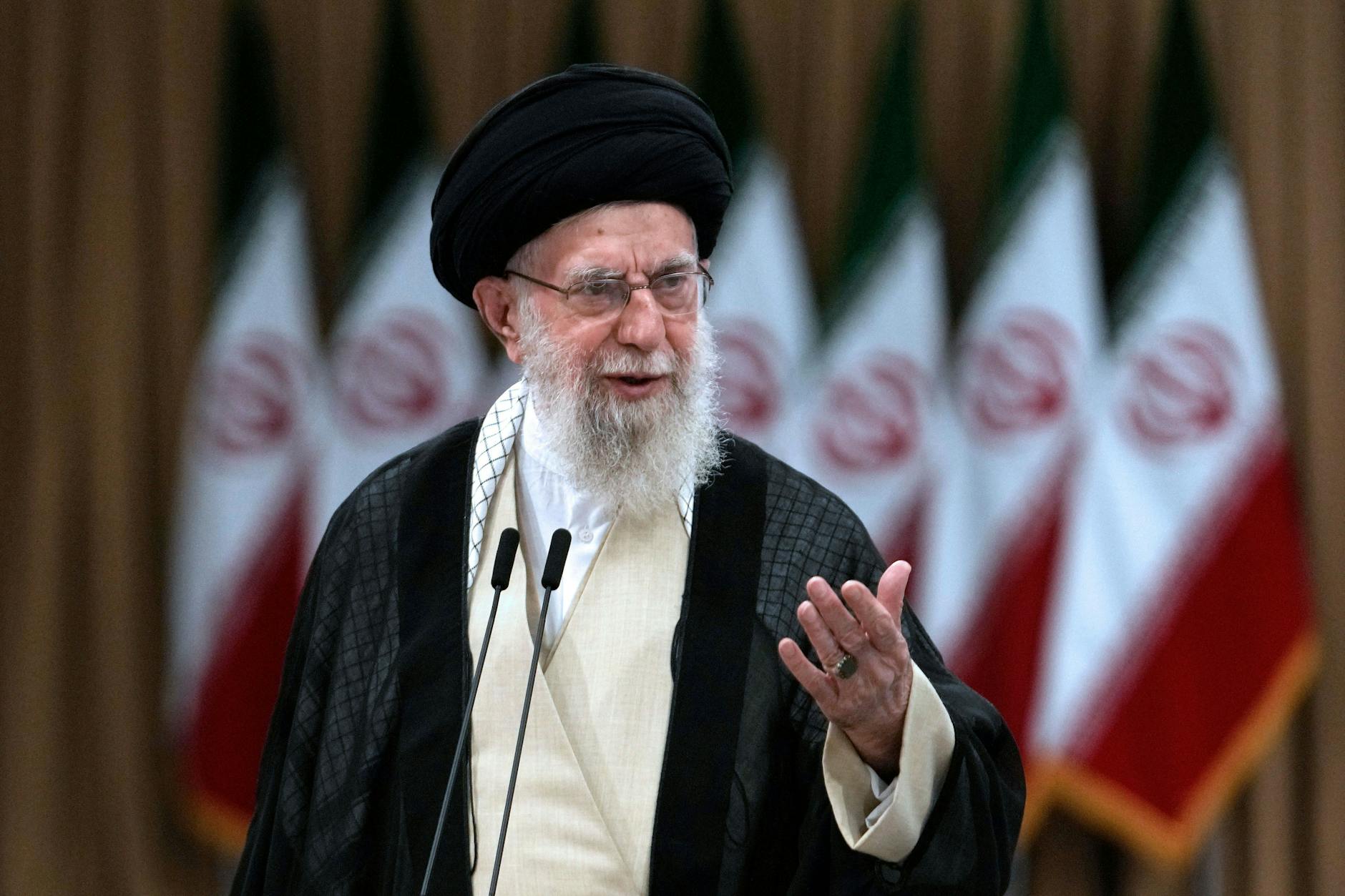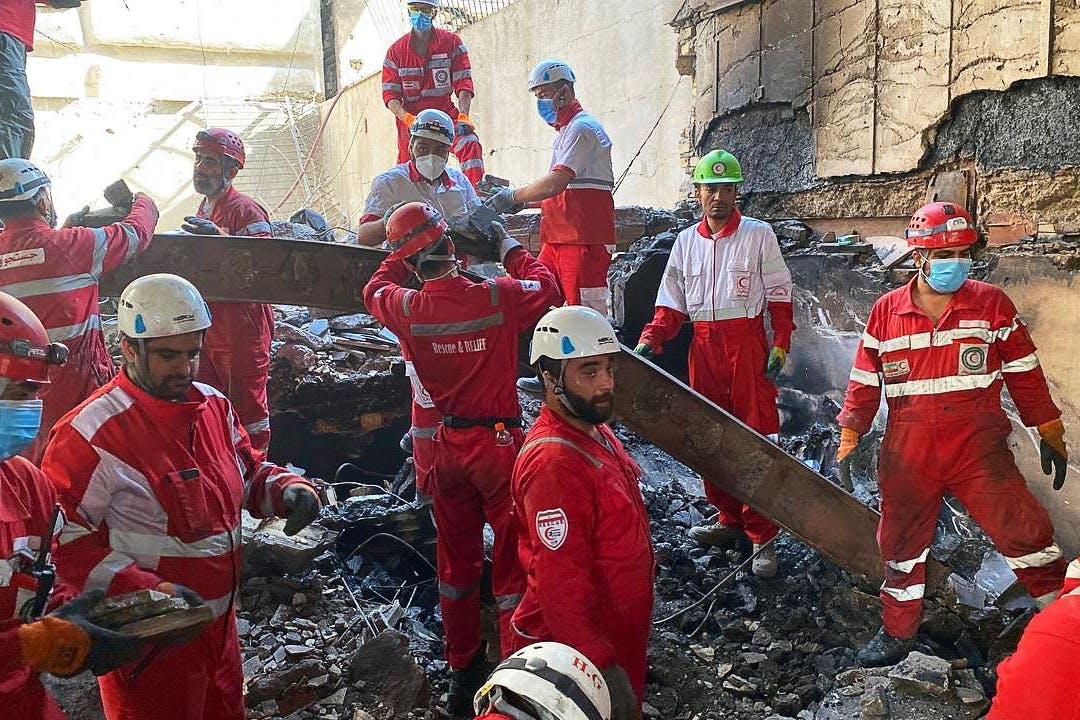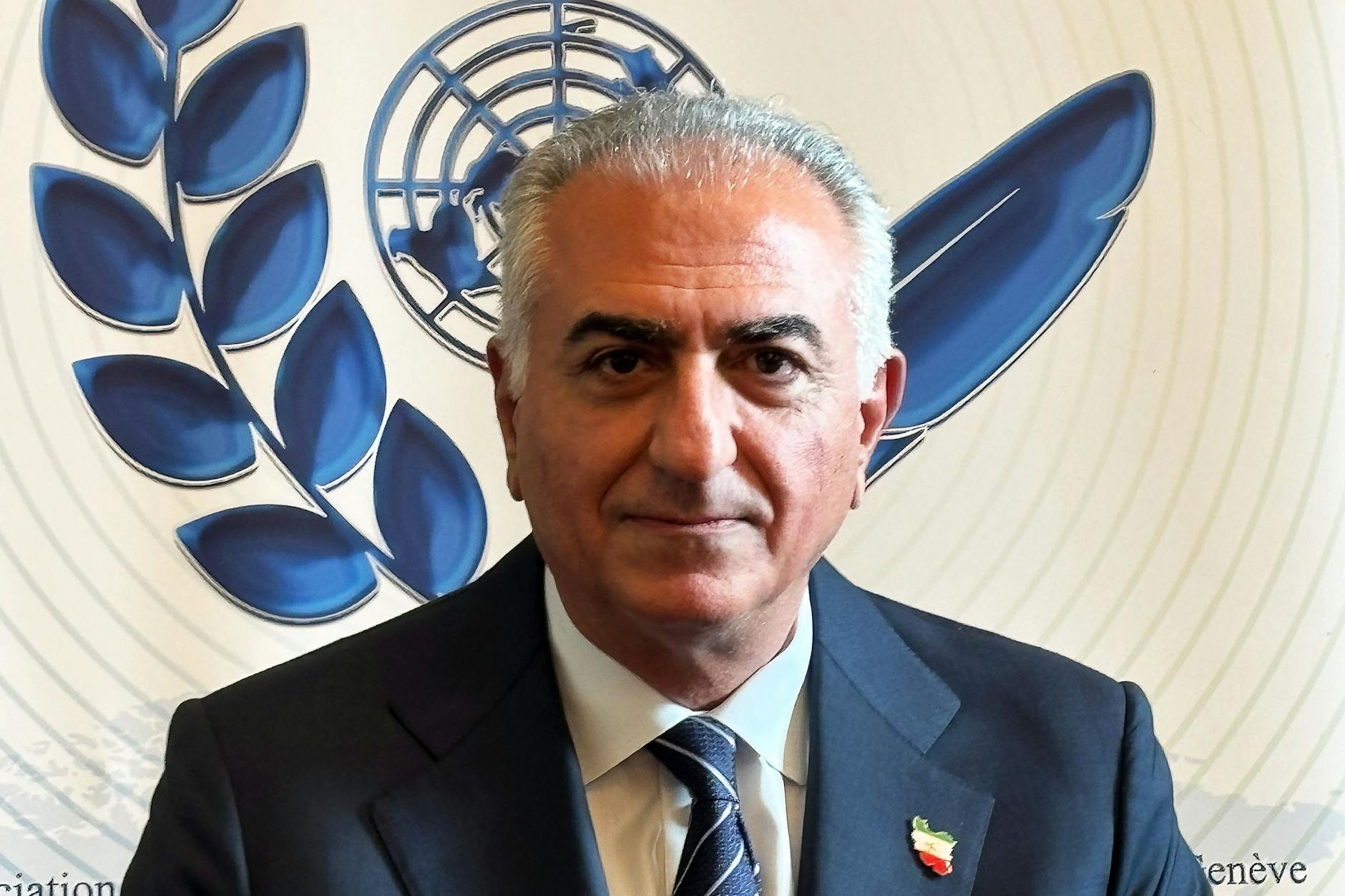Escalation in the Middle East: These are the worries and hopes of a Berlin politician

Gollaleh Ahmadi is currently experiencing difficult nights. The Green Party politician from the House of Representatives is probably feeling the same way as most of the approximately 18,000 people of Iranian descent in Berlin. The war between Israel and her former homeland is keeping the 43-year-old awake.
It's the uncertainty about what will happen next. About US President Donald Trump posting that "everyone should leave Tehran immediately" – 20 million people live in the metropolitan area – only to soon after speak of a "real end" to the conflict. The uncertainty about what Israeli Foreign Minister Katz means when he says: "We will attack very important targets in Tehran today. We will continue to deal heavy blows to Iran." The uncertainty about whether Chancellor Friedrich Merz is right when he says he suspects the US government is currently discussing the use of bunker-busting US weapons in Iran.
Gollaleh Ahmadi: What happens if the conflict escalates?For Berliners with roots in Iran, these are the most important questions right now: What happens if the conflict escalates? What does all this mean for the people there? How are the relatives and friends who remain in Tehran doing?
Gollaleh Ahmadi still has relatives in Tehran, and her best friend from school is still there. She's not alone. Many relatives, family members, and friends living in Berlin want to be reachable at all times, she told the Berliner Zeitung. To show: You are not alone.
At the same time, she knows the feelings of helplessness, powerlessness, and fear felt by those who are safe here. Every breaking news story causes panic. The periods when someone from Tehran doesn't get back to her for an extended period are particularly difficult.
Ahmadi's mother was a journalist, his father a trade unionist , both highly political figures – and thus in the sights of the mullah regime. After years of political persecution, temporary imprisonment, and going underground, the time had come to leave the country. In 1996, Ahmadi's mother and father emigrated with their two daughters.
In Germany, the family initially lived in a refugee shelter for three and a half years before settling in Fürstenwalde an der Spree . Ahmadi completed her schooling and passed her Abitur (university entrance qualification) in Fürstenwalde in 2004. She then studied history and culture of the Middle East as well as political science in Magdeburg, Frankfurt (Oder), and Berlin. Only after many years of holding her German passport could she say: "Now I'm complete!" She now lives in Spandau.

She was involved in protests against Islamists in Iran and expressed solidarity with the often fragmented opposition there. She later joined the Green Party and worked in the Bundestag office of later party leader Omid Nouripour . In 2021, the Spandau native was elected to the House of Representatives for the first time.
One of Ahamdi's topics is security policy. This doesn't just mean things like climate resilience, but also, more specifically, civil defense. And this also includes equipping Berlin with bunkers. Currently, there is only room for 27,000 people, she said. But no one knows where they are; information is scarce, she says.
But apparently, even the specified space is merely a calculation. As the Senate's response to an inquiry from Ahmadi reveals, "there are currently no usable civil defense bunkers in the state of Berlin." This also reveals that the districts are currently working on "establishing 37 officially operated so-called disaster control lighthouses and 147 volunteer-run information points for disaster control," as they say. Disaster control lighthouses are contact points for the population in crisis situations, especially during prolonged power outages, i.e., blackouts.
In Tehran, says Ahmadi, there are no bunkers for the general population, no air defense, not even an alarm system.

She doesn't have fond memories of her childhood in Iran, says Gollaleh Ahmadi. As a child, she watched the missiles fly towards Tehran from her balcony during the First Gulf War between Iran and Iraq (1980 to 1988). She was six years old at the time. Later, she too experienced the oppression, the omnipresent control, the fear. You always had to be careful on the streets, especially as a girl or woman. Even wearing a hijab (veil) incorrectly could be enough to get you arrested.
In 2022, 23-year-old Jina Mahsa Amini was killed in such an operation. The result was, once again, months of protests. For a while, it seemed as if the system that tortures and executes its opponents was beginning to falter. In the end, everything was brutally suppressed – and apparently nothing has changed.
This has been the case since the Islamic Revolution of 1979. There have been occasional phases of less repression. But this usually didn't last long, and the hardliners regained their ground.
Now, the attacks from Israel. The nuclear infrastructure is being targeted, and military and political leaders are being targeted for assassination. Is this perhaps a reason to hope that the regime would be hit so hard that it could implode?
Gollaleh Ahmadi is skeptical. "It's not a case of good and evil—it's much more complex," she says. Many Iranians are deeply conflicted. Terrorists and criminals are being killed in the attacks—many welcome that. But even more don't want liberation from outside.
Gollaleh Ahmadi: “Concern always outweighs hope”And the longer the war lasts, the more trust in Israel's claims that it wants to protect the population as much as possible and that attacks will only be sporadic dwindles. "The fear is great," she says, "and concern is always outweighing hope."
And this concern only increases for most people when they hear about Reza Pahlavi from the USA. The son of the Shah, who was overthrown in 1979, has been working for years toward a return – much to the dismay of many opposition members who want many things but not a return to the monarchy.

A few years ago, Pahlavi attempted to forge a broad alliance from his exile, including human rights lawyer and Nobel laureate Shirin Ebadi, as well as former Bundesliga footballer Ali Karami, who played for Bayern Munich, among others. The alliance didn't last long; their attitudes and interests were too divergent. It was also too uncertain whether Pahlavi would keep his promise and call elections soon once he was in power.
Now the exiled prince tweeted: "Don't worry about the morning after the fall." It's hard to imagine, not only for Gollaleh Ahmadi in Berlin, that he can win the support of the people of Iran with such slogans. He cannot be trusted.
But one thing is also certain: The old regime has lost all support among the population; according to estimates, it only has about 15 percent of the people behind it. Gollaleh Ahmadi translates a post from Iran that she considers typical: "Look what you've done to us for 46 years, that you don't have us on your side in the event of a war of aggression!"
Berliner-zeitung



